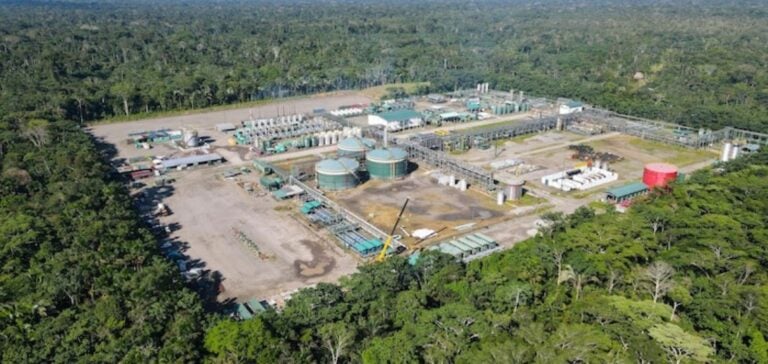Oil extraction activities in Ecuador, particularly in the Yasuni reserve, are provoking strong reactions from local populations.
This area, considered one of the world’s richest in biodiversity, is also the scene of significant oil operations, with numerous wells in operation.
In June, a hydrocarbon spill in Block 16, operated by Petroecuador, contaminated local water sources, angering indigenous communities such as the Waorani, who denounce deteriorating living conditions.
The spills are not isolated incidents but a recurring problem in the region, according to environmental organizations.
The effects on local communities, in terms of public health and pollution of natural resources, are major concerns.
These facts raise questions about risk management practices in extraction areas and the responses of the authorities to contain these impacts.
The economic challenge and oil resource management
Ecuador, dependent on oil revenues, sees its energy sector constantly challenged by conflicts of interest between resource exploitation and respect for local rights.
The 2023 referendum, in which 59% of voters voted to halt mining in block 43 (ITT), shows growing resistance to extractive practices in sensitive areas.
However, the implementation of this decision is proving complex, as the government has set aside up to five years to shut down all the wells on the block.
This lengthy and costly process, combined with potential financial losses estimated at $16.5 billion, exposes the economic challenges facing the country.
At the same time, mechanisms such as debt-for-nature swaps are being considered as solutions to alleviate economic pressures while conserving ecosystems.
However, these approaches remain in the study phase and are dependent on international agreements.
Strategic management and sector impact
Ecuador’s dependence on oil revenues is generating intense debate on natural resource management strategy and economic diversification.
With oil revenues reaching 7.8 billion dollars last year, tensions between development imperatives and resource protection are growing.
Local populations, especially those directly affected by oil operations, are challenging the official discourse on the benefits brought by the industry, particularly in terms of local development and infrastructure.
International and local players in the energy sector are closely following developments in Ecuador, where pressure for greater regulation and transparent resource management is growing.
This dynamic is influencing not only national policies, but also foreign investment, in a context where political and environmental stability are increasingly integrated into investors’ decision-making criteria.
Outlook and adaptations in the energy sector
Ecuador’s current situation demonstrates the need to adapt its energy policies, where the management of natural resources must be rethought to better integrate the challenges of economic and social sustainability.
Recent decisions and local reactions highlight the need for an energy strategy that meets the expectations of the various stakeholders, while guaranteeing profitability for the State.
Discussions on the country’s future economic models include further diversification of revenue sources beyond oil.
Dialogues between the government, local communities and foreign investors, particularly on issues such as improving risk management practices and investing in resilient infrastructure, will be crucial to Ecuador’s energy future.





















